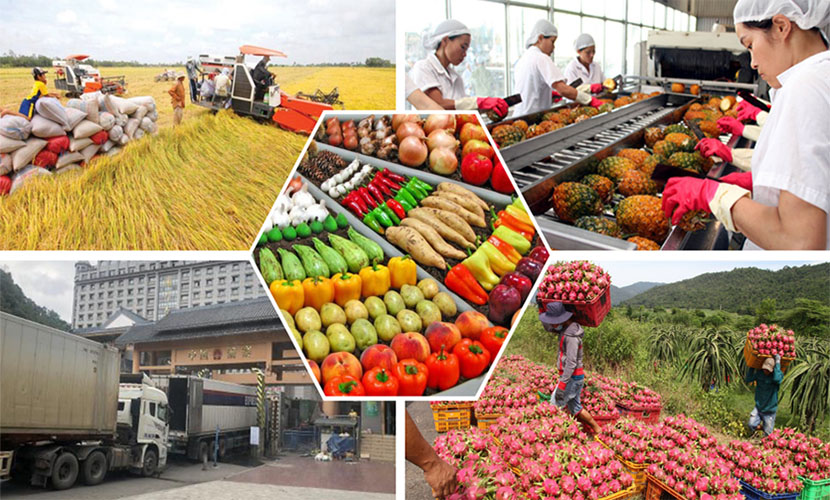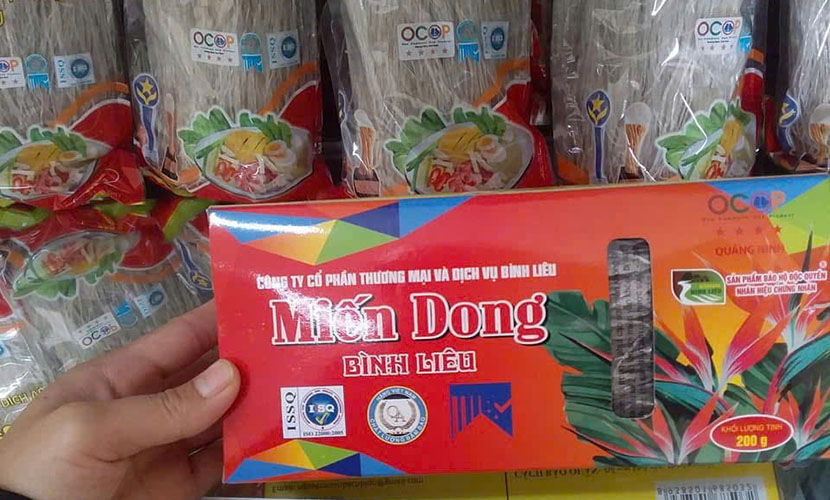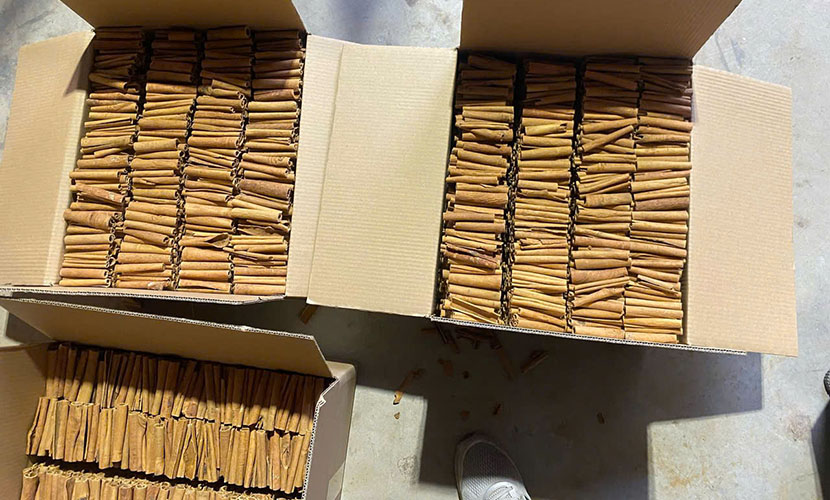
Vietnam’s agri-products generates tens of billions of USD in export revenue each year. However, they still face numerous warnings from import partners. This situation requires businesses to seriously address quality issues in order to build a strong brand and maintain market position.
In 2024, Vietnam’s fruit and vegetable exports reached approximately $7.15 billion, up 27.6% compared to 2023. Of this, exports to China reached over $4.63 billion, up 27.3%. The U.S, South Korea and Thailand followed with the increasing rates of 39.8%, 39.6%, 73.7%, respectively.
These figures reflected the Vietnam’s fruit and vegetable sector’s efforts to improve quality and meet strict market standards. Especially, they showed the ability of taking advantages of opportunities offered by Free Trade Agreements (FTAs).

Vietnam’s agri-products
However, Vietnamese fruits and vegetables still faced persistent quality challenges. For example, in January 2024, China issued warnings regarding Vietnamese fresh durians and jackfruits. Notably, they failed to comply with phytosanitary and food safety regulations of this country. Accordingly, China has implemented stricter control measures on Vietnam’s agri-products.
In particular, durian exports plummeted in the first two months of 2025, with shipments to China falling by 80%. Accordingly, all durian shipments must undergo testing for cadmium and the yellow dye auramine O. Also, these residues with tests conducted at laboratories recognized by Chinese authorities. Every shipment of Vietnamese durians entering China was subject to 100% inspection prior to clearance.
According to experts, there was no clear information regarding the source of contamination by cadmium or auramine O in durians. Therefore, government involvement was crucial in establishing a legal framework to control quality from the source. For example, requiring all durian growers to provide certification that they were free from cadmium and auramine O before selling.

Binh Lieu canna starch noodle
Quality issues were also prominent in Vietnam’s pepper and spice sectors. In 2024, Vietnam received the highest number of warnings from the European Union. Specifically, there were 21 cases of quality warnings, a sevenfold increase from 2023. In which, there were chili 11 warnings with chili and 7 warnings with cinnamon.
Also in 2024, Vietnamese spices imported into the U.S. received 15 warnings. In which, there were six warnings related to Vietnamese cinnamon. In Taiwan (China), some shipments of Vietnamese black pepper forced to shipback due to excessive levels of Sudan Red, a banned carcinogenic dye.
Currently management practices focus heavily on post-inspection. Governmental agencies collect samples from facilities and send them for analysis. However, Vietnam’s network of testing and analysis labs remains weak. Therefore, obtaining results is both time-consuming and costly.
To meet the requirements of major import markets, a key management tool is to conduct testing at the source of production. Thus, testing facilities should be located in major agricultural zones, to streamline the inspection process.

Vietnam’s cinnamon sticks
Strengthening inspections from the source and ensuring information transparency are essential for the long-term success of Vietnam’s agri-products. Changing farming habits and implementing mandatory source-level inspections will not only protect consumers and export markets but also safeguard producers themselves.
Notably, in order to build a brand for Vietnamese agricultural products, we should control quality standards. Regarding this solution, experts stated that the government should soon study and issue national standards for key agricultural products.
Once quality standards for agri-products are established and implemented, stakeholders across the supply chain will have a common foundation for production, harvesting, and processing. These standards will empower Vietnam to confidently negotiate market access. At the same time, stricter legal frameworks will be introduced to protect ethical producers.
Vietnamese source: https://kinhtedothi.vn/nong-san-viet-doi-dien-voi-bai-toan-chat-luong.html
